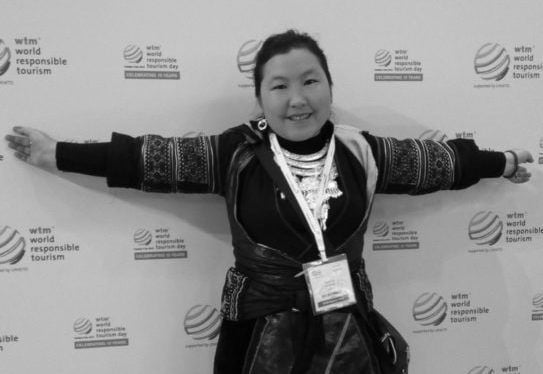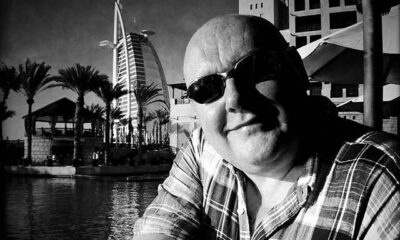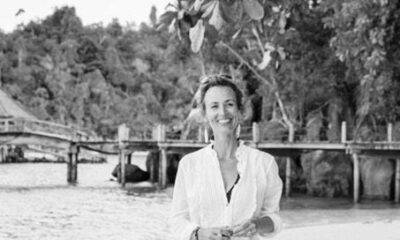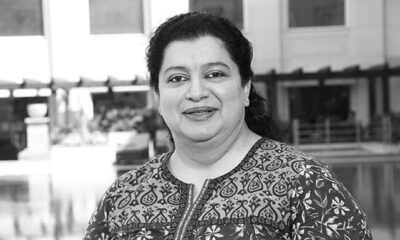

Awards
World Responsible Tourism Awards – Winners Interview Series
Exclusive Interview: Shu Tan, Sapa O’Chau
Founded in 2004, the World Responsible Tourism Awards allow people the chance to celebrate the heroes and share the stories of the most exciting and enduring responsible tourism experiences in the world.
Sapa O’Chau just won the Silver Award for “Best for poverty reduction and inclusion”.
Best for poverty reduction and inclusion is awarded to a tourism organisation with a creative and long-term approach to reducing poverty in local communities and including local and marginalised people in their activities. It is one of the longest standing categories of the World Responsible Tourism Awards. The judges wanted a tourism organisation that could prove significant reduction of poverty in a local community, inclusion of local and marginalised people, and a long-term sustainable vision for continuing their work, and providing a working example for others tourism providers around the world.
The main function of Sapa O’Chau is to support 40 ethnic minority high school students’ education in Sapa Town. This includes providing accommodation and meals at their boarding facility; supplementary lessons by their volunteers mainly focusing on English; supplementary maths and Vietnamese literature lessons by qualified local teachers. Sapa O’Chau provides support for students who graduate from high school to continue vocational training or college education. This increases the chance of employability for their students. Sapa O’Chau also creates jobs for ethnic minorities with its social enterprise. The social enterprise comprises of a trekking business, a handicraft business and a cafe business. These businesses provide financial support for the 40 ethnic minority high school students. Sapa O’Chau employs 44 ethnic minority people out of 48 employees (as of end 2015). 28 work as trekking guides. Sapa O’Chau collaborates with 15 homestays by bringing their trekking guests to them.
We interviewed Shu Tan, Founder and Director of Sapa O’Chau to tell us more.
Sapa O’Chau recently won a World Responsible Tourism Award. In 140 characters (a tweet) or less – why do you think you won such an important award?
Sapa O’Chau measures how it impacts the community by empowering the local community with jobs and education.
What was the driver for creating Sapa O’Chau specifically – what gap does it fill?
Sapa O’Chau is fully ethnic minority owned and run for the improvement of the ethnic minority communities. Thus it has full commitment to local ethnic minority community issues. We strive to provide opportunities for ethnic minority families to lift themselves out of the poverty cycle. Policies for community engagement are embedded across the organisation. Our trekking guides, office staff, cafe staff, handicraft staff, management staff and students are our ambassadors of empowerment. They are our living proof of how their lives and their families’ lives improve in standard of living. Our handicraft department also source materials from local supply chains so that they will continue the art of making them.
We engage the community by encouraging high school youth to continue education. Our boarding facility supports 35 high school students yearly. We also provide scholarships to support 10 ethnic minority youth tertiary education. Sapa O’Chau is pleased to announce that all 21 of our grade 12 students 2015/2016 graduated successfully. Our Founder and Director Ms Shu Tan also graduated grade 12. 14 managed to get into university/college. 12 are also being supported by our scholarships in addition to the 10 we support from last year.
This year we will increase our student intake to 40 students. We plan to take in students in batches after carefully interviewing the teachers about their family condition and capability to study. Sapa O’Chau rented a residential building opposite our main boarding facility. The rental is about USD400 per month. In the months of August to October, Sapa O’Chau partners with Ministry of Labour – Invalids and Social Affairs (MOLISA) to provide accommodation and classroom facility support for 26 youth to be trained as tour guides. The tour guide students pay for their own food expenses that Sapa O’Chau cooks for them. MOLISA provide the trainers for the theory of tourism studies. After their completion of the theory segment, the students have to fulfil a three week practicum and exam by the Ministry of Culture, Sports and Tourism (MOCST) to obtain their local tour guide license. The students have to sponsor their own practicum and exam which costs 1.5 million dong per student.. All 26 students successfully completed the MOLISA training. 24 students received their local tour guide license, 1 failed and the other did not take up the practicum.
Our social enterprise business provides sustainable careers for 48 ethnic minority staff out of 52 staff. We maintain a sense of place and cultural heritage by preserving our unique cultural identity and ensuring that tourism activities do not disrupt the lives of communities or dirty the environment. Each trekking group is kept small, 6 people.
Evidence of significant investment in creating and maintaining community projects Sapa O’Chau started the cooperative in 2011. It invested in building the first Black Hmong homestay in Lao Chai Village, Sapa. In 2013, Sapa O’Chau obtained its international tour operator license having earned the deposit USD12,000 required for it. It is the first ethnic minority owned tour operator in Vietnam. http://hanoigrapevine.com/2013/08/sapa-ochau-vietnams-first-minority-owned-tour-operator/
We insisted on setting up a handicraft department although the market is already flooded with handicraft products. The rationale is that these handicrafts out in the market are not authentic handmade ones or are second hand goods. We hope that by setting up a handicraft business to sell quality handicrafts, we can preserve the art of making them. The craftwomen will continue to make the handicrafts as they see value in them. They will also pass on the art to the next generation. We hope to set an example to street touts who are increasingly using their young children to sell on the streets that what they are doing is not sustainable.
Who is Sapa O’Chau primarily for?
Sapa O’Chau focuses on alleviating the conditions of underprivileged ethnic minority communities in Sapa. There are five ethnic minority groups in Sapa: Hmong, Red Dao, Tay, Giay and Xa Pho. We do reach out to the underprivileged families of Vietnam’s main Kinh ethnic group if we have enough resources to support but we maintain our focus on a holistic approach to alleviating whole communities in Sapa. Sapa O’Chau sets a sustainable responsible model as an example for the communities to follow.
What difference does Sapa O’Chau want to make?
Sapa O’Chau wants to alleviate the social conditions of communities in Sapa as a whole by empowering them through promoting learning and providing sustainable employment. This aim is embedded in our mission statement.
What are the barriers to making that difference?
The biggest challenge is when our trekking guests are price sensitive. Supporting sustainability is the last thing on their mind when deciding to book their tour with us. Regardless of how much community work we do and how fair our wages are, these groups of people only see our tour prices as overpriced. Many of our trekking guests also have no regard for the cost already spent on arranging their treks when weather turns bad. They would demand a full refund or write bad reviews on tripadvisor.
Social enterprise is a new concept in Vietnam although it existed centuries ago in the UK. The Law of Enterprise was only recently amended in 2014 to accept the term social enterprise. The application process was only approved in late 2015. The country needs time to adjust to this new terminology and understand the hardships of social enterprises instead of treating them like normal businesses. Social enterprises need to alleviate poor social conditions and at the same time manage the business aspect well.
Who’s helping you overcome those barriers?
Accreditation from World Responsible Tourism Awards 2016 and World Tourism Tomorrow Awards 2016 help us to overcome these barriers. This helps our guests understand the significance of our social impact to be recognised by reputable global organisations. My personal recognition by Forbes Vietnam’s 30 under 30 list also helps me communicate my dream of a better life for our impoverished ethnic minority communities to the whole of Vietnam. It is an honour to be approached by the Ministry of Labour (MOLISA) to collaborate with the training for new ethnic minority tour guides this year.
Is the tourism sector doing enough to deliver a sustainable travel and tourism?
The tourism industry is profit driven and to provide sustainable responsible travel requires extensive investment in training local people. Tourists have an important part to play too. If tourists recognise and accept the costs involved in tour operators delivering sustainable responsible travel, they would in turn encourage more tour operators to deliver sustainable responsible travel rather than be price competitive only.
How can people find out more about Sapa O’Chau?
Sapa O’Chau is honoured to be listed on Lonely Planet web and print edition. We have detailed information on our website, candid bitesize information on our Facebook page, videos on our youtube page, reviews from our guests on TripAdvisor, blogs about Sapa O’Chau on our Pinterest page, and writeups about Sapa O’Chau on World Tourism for Tomorrow, World Responsible Tourism, Visit.org, LokalTravel and CSIP.


 Environment12 months ago
Environment12 months agoAre Polymer Banknotes: an Eco-Friendly Trend or a Groundswell?

 Features11 months ago
Features11 months agoEco-Friendly Cryptocurrencies: Sustainable Investment Choices

 Features12 months ago
Features12 months agoEco-Friendly Crypto Traders Must Find the Right Exchange

 Energy11 months ago
Energy11 months agoThe Growing Role of Solar Panels in Ireland’s Energy Future





























